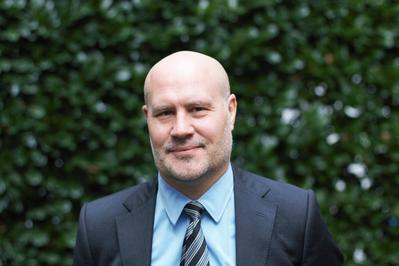Ian Smith

Tell us about your background and why you decided to become a barrister.
I grew up in a largely working-class community. My mother was Italian and my father worked in a factory. Neither had been to university. I attended my local comprehensive school. There was a child at school who said he wanted to be a barrister. I thought that he was living in a fantasy world.
When I started at sixth firm college, my sister was a legal secretary and outdoor clerk in a local solicitors’ office and got me interested with stories about the criminal courts. I ended up applying to universities to study law but still had no real idea about what it would take to become a lawyer, let alone become a barrister.
Only after making it through to becoming and practising as a solicitor did I think of becoming a barrister. I was in my early thirties by then and wanted the freedom and responsibilities of life as a barrister.
Did you face any obstacles along your journey to becoming a barrister and how did you overcome them? Have any of them persisted since becoming a barrister?
Nobody in my immediate family had been to university and no one in my extended family was in a profession. I can remember attending a dining at Middle Temple organised by a student association in my university law faculty. This experience confirmed to me that I was not the sort of person who became a barrister. The dining etiquettes and dressing up was all very off-putting, even intimidating for someone of my background. But those feelings ebbed away over the years; after I entered, worked in the legal profession, became a solicitor-advocate and was able to see myself as both an advocate and a barrister.
I think that one of the biggest things people from under-represented backgrounds feel is that we just don’t look or sound like those in the legal profession. A couple of years ago, a work experience student came to court with me to watch me at a hearing. After the hearing, I asked the student to tell me what he thought was the main difference between the advocates. He replied that the other advocate had a “posher” voice! Since I was against a QC, I took the apparent lack of another more obvious distinction as a compliment. I’m past worrying about what kind of accent I have; but it’s not a good sign that students are still preoccupied with such things, indeed perhaps that others are too.
What opportunities, support and encouragement did you receive along your journey to becoming a barrister?
I muddled along, knowing that I was academic enough to get a good degree and pass law school, but lacking the confidence to even consider becoming a barrister. I thought that was for the uber-confident, well-connected, wealthy and gifted students; in short not someone like me. When I decided that I would switch from being a solicitor to a barrister, I confided in a barrister. He immediately told me that “fortune favours the brave” and that I would be great as a barrister.
What is the most rewarding thing about being a barrister; has life at the Bar met your expectations?
My workload is mostly commercial litigation involving allegations of dishonesty. I do a lot of work for victims of fraud who are trying to recover money they have lost. The casework and advocacy are hard and sometimes stressful, but the cases themselves and the wide set of professional relationships I have with other lawyers in and outside the UK are really rewarding. And I still really enjoy learning the law.
How do you use your experience of coming to the Bar from an under-represented background to support those seeking to do the same, and/or why is it important for barristers to contribute in this way?
I have given a number of talks to students in state schools to try an bolster their confidence and help them understand the process of becoming a lawyer, either barrister or solicitor.
Those of us who have come from under-represented backgrounds have the experience to be able to explain things in a way that students from similar backgrounds can understand. Those students can relate to our own experiences, the obstacles we faced and how we overcame them.
If we at the Bar do not support people from under-represented backgrounds, they will face even greater obstacles to joining the profession.
How do you think the challenges around social mobility at the Bar which face aspiring barristers today could be addressed?
Outreach activities, online and in person, giving both students and their teachers the confidence to believe that it’s achievable.
What advice would you give to someone from an under-represented background, seeking to succeed at the Bar?
- Be ambitious in stages. You can’t get from A to Z, without getting to B and C (and so on) first.
- Learn how to negotiate. You’ll end up using your negotiation skills in everything you do, both for yourself and for others.
- Be confident about what you can achieve; and have the maturity to show humility too.
- Find good mentors.
- Be yourself. it’s no use trying to be anybody else.
- It’s ok to be imperfect.